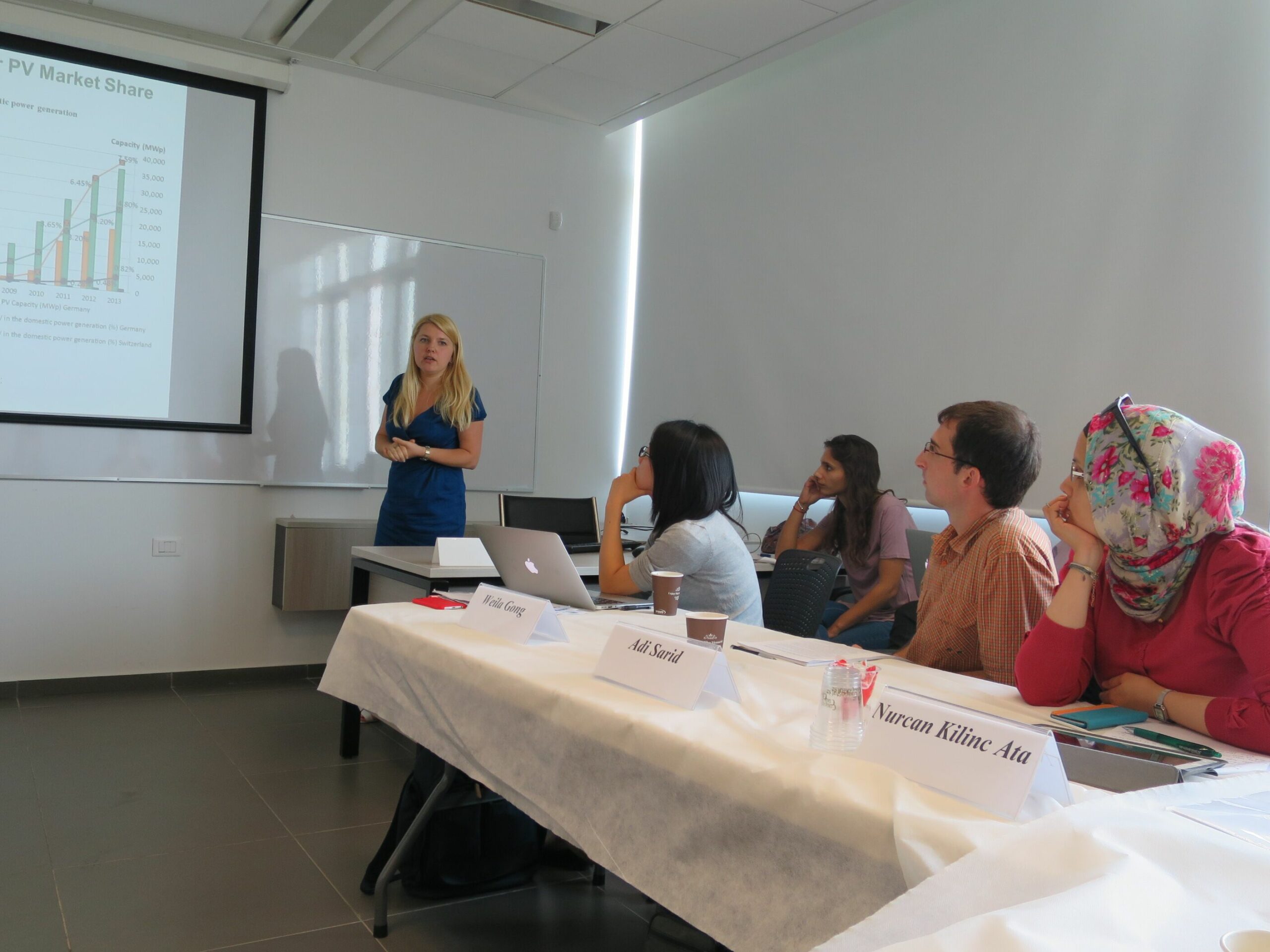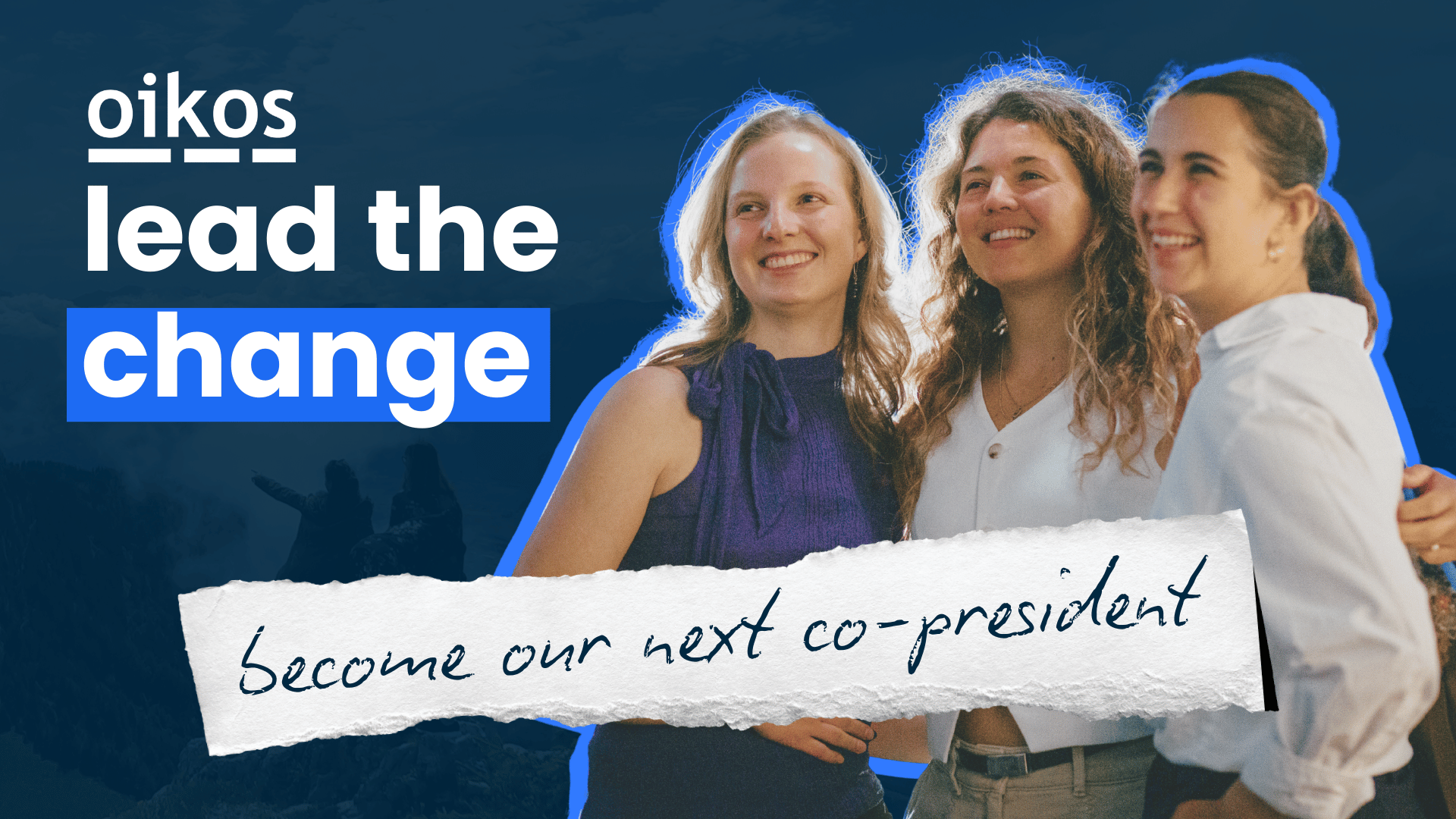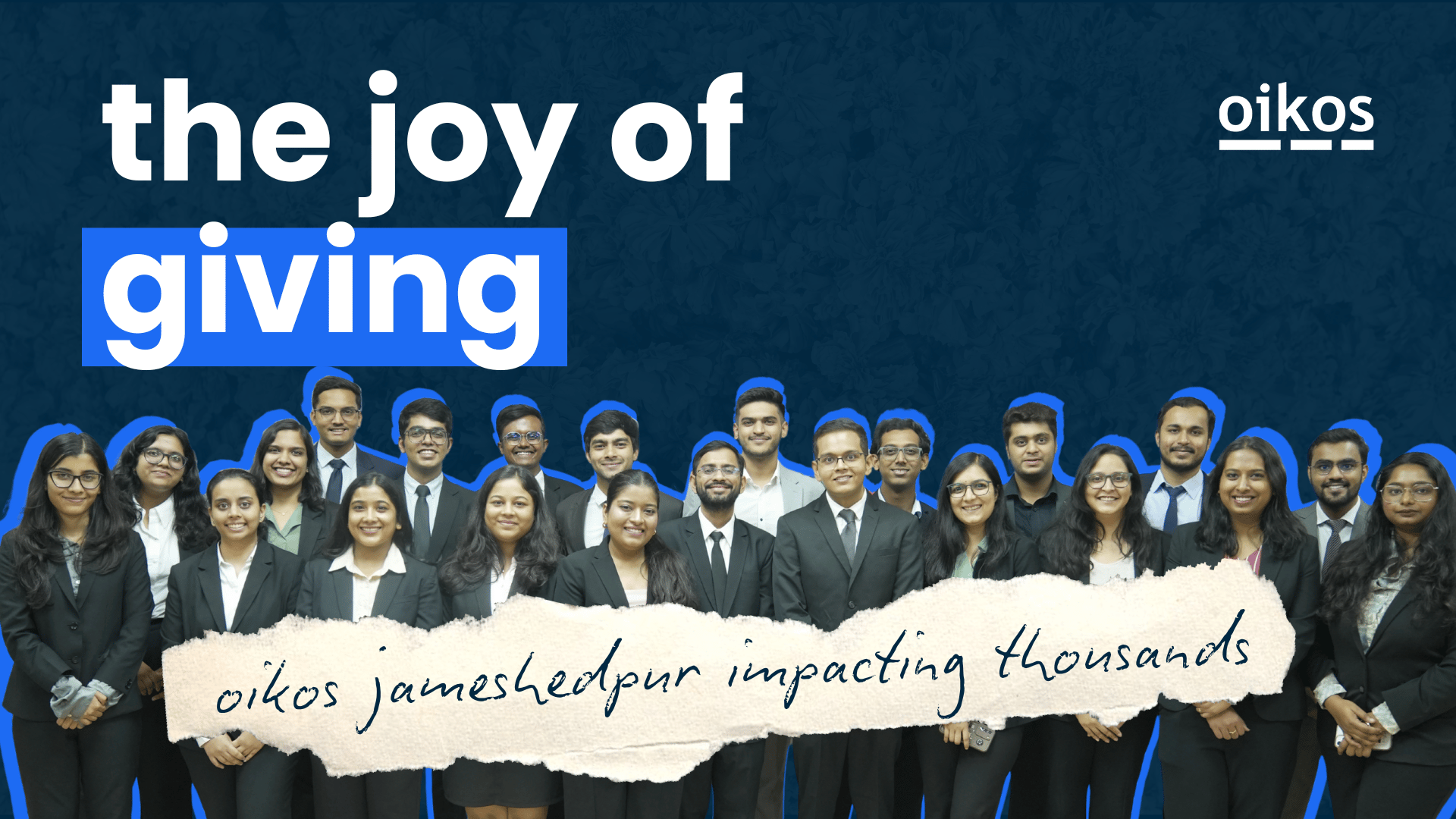
What drives an energy transition? Which obstacles need to be overcome? How can we academics contribute to that massive sociotechnical revolution? Young energy scholars from all over Europe and Israel together with senior researchers in the field tackled these and other questions at the oikos Young Scholars Energy Academy in June 2015, hosted by the Tel Aviv University.
The city of Tel Aviv set the scene by giving some inspiring examples for an energy transition. The newly constructed Porter School meets the highest standards in energy efficient and sustainable building; Tel Aviv managed to convert its massive open landfill into the Hiriya recycling park that produces bioenergy from methane; electrical bicycles have been established as a main mode of transport all around the city. These cases are encouraging. Yet, how can we transform the whole energy system?
Researchers all over the world are eager to show that an energy transition is possible, manageable and happening already for a long time. 13 of them presented their inspiring work during the oikos Young Scholars Energy Academy. They convened in Tel Aviv to showcase their most recent work on renewable energy and energy systems and discussed technical, economic, social or political innovations. The scholars brought together a wide range of disciplines, approaches, experiences and methodologies. Political scientists tracing policy evolution through careful historical documentation, economists calculating changing prices and preferences for energy services and technologies, development specialists applying transition theories to international development, to name just a few examples.
The oikos Young Scholars Energy Academy 2015 was led by Prof. Itai Sened and Dr. Vered Blass from the Tel Aviv University, Rolf Wüstenhagen from the University of St. Gallen, and Miranda Schreurs from the Freie Universität Berlin. It provided an intense four days’ workshop for PhD students and young postdocs that built on a twelve year tradition of international oikos academies in the field of sustainability, strategy and entrepreneurship.

The academy allowed the participants to bring up critical questions about each other’s
work, but also created a more subtle understanding of the complexities in transforming the energy system. Why are certain countries more successful than others? How much are users willing to pay for a cleaner energy system? What would be the optimal feed-on tariff in different stages of technological development? How can personal leadership turn a vision into reality? Why do some local communities accept renewables while others resist? The different topics very well showcased that an analysis of energy transitions needs to deal not only with the risks and returns of renewables, but also cover social and political factors like public opinion, administrative capacity or conflicts. In economic terms, this stresses the role of an often underestimated error term – the “epsilon”. As the discussion revealed, this requires both quantitative and qualitative approaches.
Visiting Israel, the workshop agenda did not ignore the country’s unique energy setting. Israel has a great yet untapped potential available for producing electricity from solar panels and is also on the verge of completely changing its energy mix based on recent discoveries of large natural gas reserves at Israel’s shores. Participants met with leading industry, policy, and civil society actors, who discussed the barriers to the spread of renewables in Israel, and what the country could look like if regional renewable energy entrepreneurship such as the demonstration project in the southern region of Eilat Eilot would be scaled up and supported systematically.
Authors: Amit Ashkenazy and Jens Marquardt




